Filter by

Cricket
England may have been the birthplace of Cricket, but today people of all ages play the sport around the globe. With its focus on good sportsmanship and its exciting professional matches, the sport will fascinate students. The book also includes maps, diagrams, and engaging photos.
- Edition
- ed. I
- Series Title
- LEVELLED BOOK . Z
- Call Number
- 895.9 MIC c

Abraham Lincoln: From Log Cabin to the White House
Abraham Lincoln's life began in a humble log cabin in Kentucky. Self-educated and skilled at public speaking, Lincoln became a lawyer, a member of Congress, and eventually president of the United States. This biography clearly illustrates illustrates Lincoln's impact on U.S. history and why he is considered one of the most important American presidents.
- Edition
- ed. I
- Series Title
- LEVELLED BOOK . Z
- Call Number
- BEA a
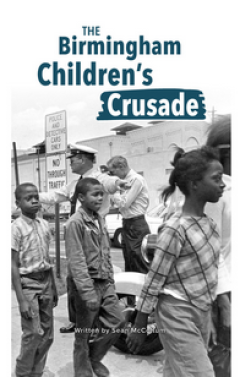
The Birmingham Children's Crusade
Growing up as a Black child in Birmingham, Alabama, during the early half of the twentieth century was incredibly dangerous. Segregation was still prevalent, and the treatment of Black Americans was horrific. Children watched as their elders faced discrimination and hate daily, until they too decided to take a stand. The Birmingham Children's Crusade tells of how Black children bravely proteste…
- Edition
- ed. I
- Series Title
- LEVELLED BOOK . Z
- Call Number
- SEA t

France
Reading this book will teach students why France is the most visited country in the world. France goes into detail about the people, landforms, food, and celebrations that make France popular. Pictures and maps supplement the text.
- Edition
- ed. I
- Series Title
- LEVELLED BOOK . Z
- Call Number
- 000 TRA f
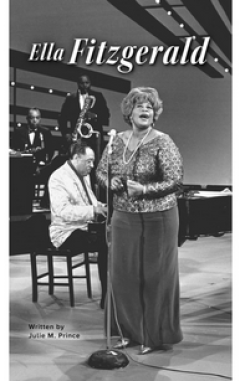
Ella Fitzgerald
Winner of the National Medal of Arts and 13 Grammy Awards. Sold over 40 million records. Named the "First Lady of Song." These are just some of the accomplishments of music legend Ella Fitzgerald. Although life for this legendary vocalist was fraught with racism, sexism, and classism, Ella showed the world that people can overcome adversity and achieve their dreams. Photographs support the text.
- Edition
- ed. I
- Series Title
- LEVELLED BOOK . Z
- Call Number
- JUL e
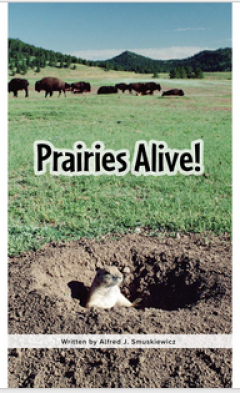
Prairies Alive!
Prairies Alive! teaches readers all about the grasslands of the world. It highlights three types of North American grasslands, tells about the importance of fire, and explains the need to preserve the world's prairies. The book also gives detailed examples of the kinds of plants and animals found on the prairie. Photographs, illustrations, and captions support the text.
- Edition
- ed. I
- Series Title
- LEVELLED BOOK . Z
- Call Number
- ALF p

Genetics at Work
Genetics at Work explores the role that genetics plays in our growing world. The field of genetics is an ever-changing and rapidly expanding branch of science. From farming to crime fighting and disease prevention, genetics is shaping our future. Students will have the opportunity to learn more about these advancements while practicing the skills of summarizing and identifying main ideas and su…
- Edition
- ed. I
- Series Title
- LEVELLED BOOK . Z
- Call Number
- 576.5 RAC g
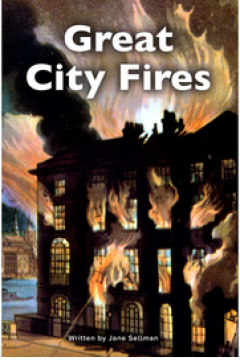
Great City Fires
Thrilling historical details and descriptions of city life of the past enhance the stories of three major urban fires. The fires of Rome, London, and Chicago led to tragic loss of life and property, but as the text shows, they also led to reforms and the fire safety our cities use today. Fire safety tips conclude the book.
- Edition
- ed. I
- Series Title
- LEVELLED BOOK . Z
- Call Number
- 307.76 JAN g
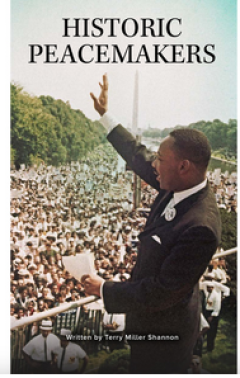
Historic Peacemakers
Historic Peacemakers highlights six Nobel Peace Prize winners: Wangarĩ Muta Maathai, Nelson Mandela, Martin Luther King, Jr., Óscar Romero, Mairead Corrigan, and Betty Williams. It also presents information on peer mediation groups and appeals to readers to find the peacemaker within themselves. Historic photographs support the text.
- Edition
- ed. I
- Series Title
- LEVELLED BOOK . Z
- Call Number
- 322.425 TER h
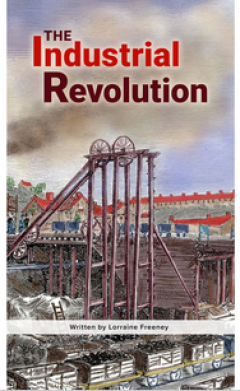
The Industrial Revolution
The world as we know it today is a direct result of the Industrial Revolution, a time of great change and innovation. While the Industrial Revolution improved the standard of living for many people around the world, it also had negative effects, including an ongoing dependency on fossil fuels and poor work environments. The Industrial Revolution introduces students to a detailed history of this…
- Edition
- ed. I
- Series Title
- LEVELLED BOOK . Z
- Call Number
- 337.009 LOR t
 Computer Science, Information & General Works
Computer Science, Information & General Works  Philosophy & Psychology
Philosophy & Psychology  Religion
Religion  Social Sciences
Social Sciences  Language
Language  Pure Science
Pure Science  Applied Sciences
Applied Sciences  Art & Recreation
Art & Recreation  Literature
Literature  History & Geography
History & Geography